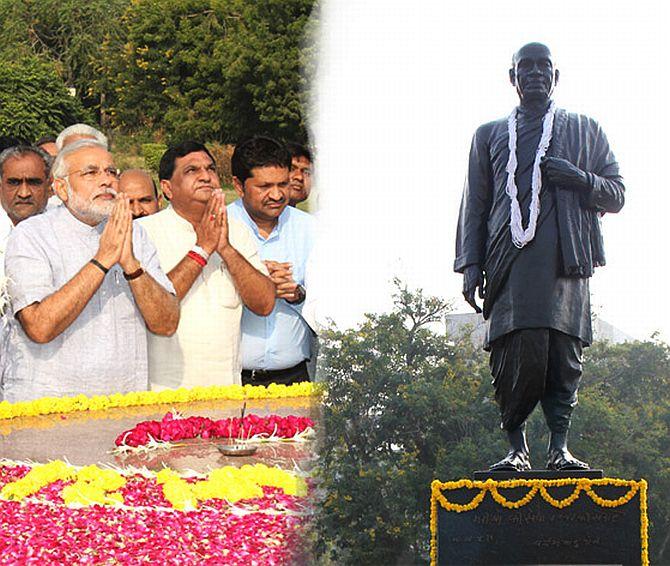
Those who are so quick to claim Sardar Vallabhbhai Patel’s mantle but who fail to do him justice and actually diminish and distort him will learn that we must dare to be ambitious, confident and try for the best outcomes for India, says National Security Adviser Shivshankar Menon.
Here's the transcript of the speech that the National Security Adviser gave while addressing AIR Sardar Patel Memorial Lecture in New Delhi
It is no easy task to speak in memory of the man who literally created the Indian Union as we know it. Sardar Vallabhbhai Patel was a giant in more senses than one.
He re-united an India riven by the British after Partition and Independence, when that task seemed almost impossible to his contemporaries; he created and set standards for party organisation that everyone claims and strives for but no-one has achieved since; he laid the foundations for a modern Indian civil service under democracy; and, unlike his imitators and those who would claim his legacy, he worked tirelessly and successfully for communal harmony in the midst of the horrors of Partition.
Let me recount one incident from 1947. At Amritsar on 30 September 1947, when refugees were being killed in both India and Pakistan, Patel spoke extempore to the public to restore calm and prevent revenge killings of Muslim refugees trying to go to Pakistan. In one of the greatest speeches of his life he said:
"Here, in this same city, the blood of Hindus, Sikhs and Muslims mingled in the bloodbath of Jallianwala Bagh. I am grieved to think that things have come to such a pass that no Muslim can go about in Amritsar and no Hindu or Sikh can even think of living in Lahore. The butchery of innocent and defenceless men, women and children does not behove brave men... I am quite certain that India's interest lies in getting all her men and women across the border and sending out all Muslims from East Punjab. I have come to you with a specific appeal. Pledge the safety of Muslim refugees crossing the city. Any obstacles or hindrances will only worsen the plight of our refugees who are already performing prodigious feats of endurance. If we have to fight, we must fight clean. Such a fight must await an appropriate time and conditions and you must be watchful in choosing your ground. To fight against the refugees is no fight at all. No laws of humanity or war among honourable men permit the murder of people who have sought shelter and protection. Let there be truce for three months in which both sides can exchange their refugees. This sort of truce is permitted even by laws of war. Let us take the initiative in breaking this vicious circle of attacks and counter-attacks. Hold your hands for a week and see what happens. Make way for the refugees with your own force of volunteers and let them deliver the refugees safely at our frontier."
Following his dialogue with community leaders and his speech, no further attacks occurred against Muslim refugees in Amritsar, and a wider peace and order was re-established soon over the entire area.
This is vintage Patel, showing courage and bravery in the face of high and hostile emotions, using reason, self-interest and realpolitik in his argument, and achieving the impossible.
...
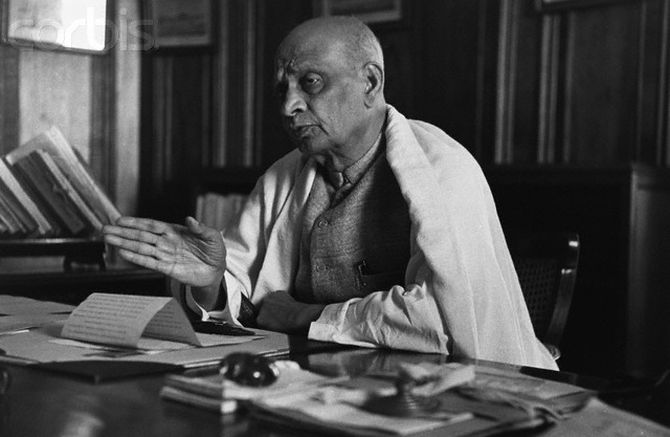
Most of all, for me, his integrity shines through, his intellectual honesty, no false promises and no emotion other than patriotism, one man in a position of authority standing for what he considers right, against the tide of popular feeling.
No wonder that when he died on 15 December 1950 in Mumbai, in a gesture never repeated before or after, 1500 civil servants gathered at his Delhi home, 1 Aurangzeb Road, to pledge to work for the nation as he had done.
It was the same integrity and clarity that Patel displayed in his understanding of the world and India’s place in it. He was clear that it is primarily our internal strength that we must rely on to navigate the complex international situation.
In retrospect, his support for total non-cooperation with the British when WWII broke out unless they promised full independence to India after the war was the correct choice.
(This was when Socialists and Communists were confused by the Nazi-Soviet pact and Subhash Bose wanted an alliance with Japan.)
In 1942 Patel organised and sustained what the then Viceroy called the most serious rebellion since 1857. He was prescient in his opposition to taking the Kashmir issue to the UN, in his views on responses to the Chinese PLA taking Tibet, on liberating Goa by force, and on Hyderabad. Over time we have come to realise the wisdom of what he said and, in effect, we have followed his advice, albeit sometimes late.
In each of these instances Patel was a realist, who understood the balance of forces and placed little reliance on international understanding and institutions. But unlike present day Kautilyas or Machiavellis trying to claim him as their own, Patel’s was a realism tempered by principle and integrity. He had confidence in ourselves, and the ambition to try, all based on a strong patriotism, (not chauvinism).
...

Preparing for this lecture I could not but wonder whether we still display these characteristics today in our dealings with the world. Of course, Patel was a rarity even in his own time, a time that seems in retrospect to be a time of giants, of great leaders of vision and capability. It may be worth seeing how Patel would react to and deal with today’s world. Let us consider why and how India deals with the world today and try and answer this question if we can.
Why?
The main reason we deal with the world is because the world is essential to our quest to transform India. In history, India has flourished and her people have been most prosperous when she was most open and linked to the rest of the world.
You have only to think of the periods of great Indian achievement in the economy, science and culture -- the Mauryas, the Guptas, the Cholas, and the Mughals. Each of their realms was intimately connected with the rest of the world, not just in trade but in the spread of ideas, religion and science.
(The opposite case also proves the proposition. Under the British Empire India’s links with the world were progressively whittled down to a supplier of raw materials and coolie labour, India was de-industrialised, and the result was fifty years of zero growth from 1900 onwards, mass hunger, famine, disease and poverty. In two hundred years one of the most advanced and prosperous societies on earth had been made into one of its poorest and most backward societies.)
After independence as well India has grown most rapidly since she opened up to the outside world again after 1991. India has been a major beneficiary of the open, interdependent world economy of the two decades before the world economic crisis of 2007-8. The role of foreign markets, capital and technology in enabling us to develop India is growing. We are not members of effective regional integration and market arrangements. Our interest is therefore in keeping the international economic system open, without protectionist distortions, while democratizing international decision making.
We now measure ourselves against international standards and benchmarks in an ever growing number of areas. Our diplomats had to be world class from the beginning since they dealt with the best the world put forward. And they did so successfully, against great odds.
The economy, particularly firms and services, had to measure up to world standards if they were to compete abroad after 1991. We now need to do so in governance, particularly in spheres that directly affect the common man, like policing.
...
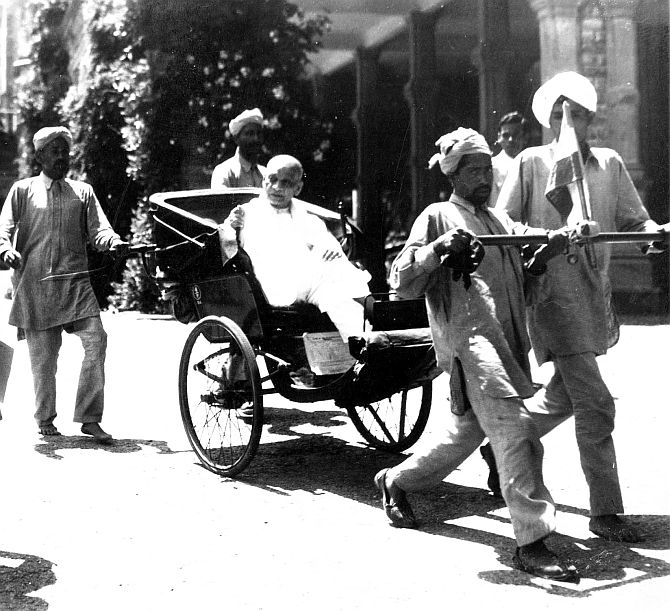
In today’s world there is no going back to absolute self-reliance, to autarchy or disengaging from the world.
They are simply not in India’s interest. India may be unique, but exceptionalism in foreign policy has its limits.
It is limited by our ever growing linkages with the world, politically, economically, socially and in terms of security. From a little over 18% of our GDP being linked to the external sector in 1991, we are now at over 40%, and rising. As the effects on our economy of the world economic crisis from 2008 showed, we are not and cannot be decoupled from the world. Terrorism and cyber security recognize no national frontiers.
How
There is of course a vast difference between the world Patel knew and what we now see. The bipolar world with two overwhelmingly powerful superpowers, of European superiority and colonial mastery, is now history, long gone, unlamented and changed much for the better.
Today we are in a world of many powers. Last year more than half the growth in the world economy came from emerging economies like India and China. We have seen the limits of traditional military force and power in Afghanistan, Iraq, and elsewhere.
India too is different from Patel’s time. We have industrialised, though not as quickly and extensively as all of us may wish. We are self sufficient in food, and widespread famines are a thing of the past. The average Indian, who lived for 26 years when Patel passed away, now lives for 65 years.
And India has an international voice and presence derived from our economic significance and willingness to accumulate and use the instruments of state power in the army, nuclear weapons and other areas. We have gathered experience and expertise, and we have active media and public involvement in policy which was absent in the forties and fifties.
But with all these achievements and improvements in our strength do we display the confidence and ambition that Patel did? I am afraid that not all of us do.
...
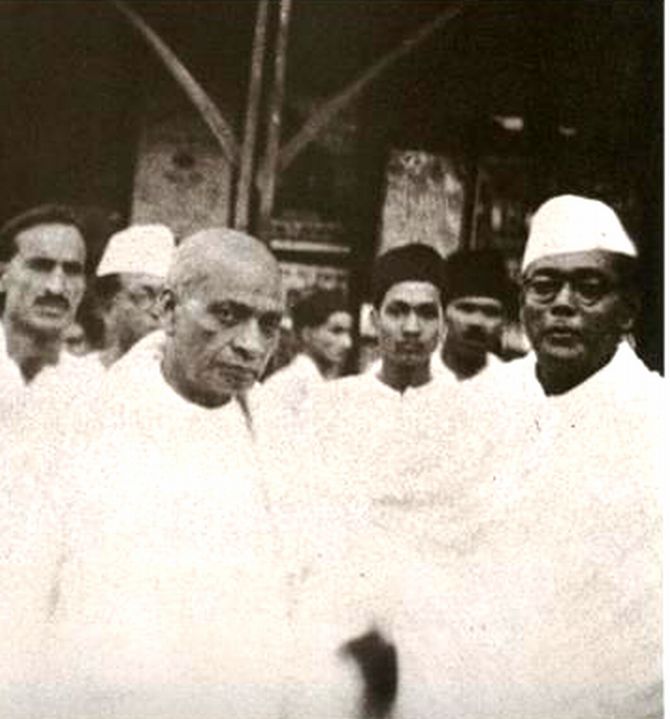
When forty self-styled experts and some political groups say do not talk to Pakistan until ideal conditions exist and all terrorism stops it betrays a lack of self confidence.
That is precisely what the terrorists and their sponsors in the Pakistani establishment want, for us not to talk to those in Pakistan who might differ from them.
Our Pakistan policy still faces the dilemmas that Patel’s generation faced: of how to prevent the enemies of India from having their way. Patel’s answer was clear, as you saw from his Amritsar speech: fight your enemies at a time and place of your choosing but do not make innocents, the people, (or refugees in that specific case), victims of your policy.
And use real politik to influence the behaviour of your friends and enemies. That is precisely what successive Indian governments under Atal Behari Vajpayee and Manmohan Singh have done.
Not talking does not change the behaviour of our enemies. In fact it hands them a success that only encourages them. At the very least talking to the saner elements in Pakistan could encourage them to stand for the right policies and could create confusion among our enemies.
Today, in effect, we follow Patel’s prescription against taking the Kashmir issue to the UN and have been successful in preventing international meddling in what is our internal affair.
As for Pakistan, she is committed, albeit reluctantly, since the Simla Agreement of 1972 to deal with us bilaterally on all issues, as was Patel’s preference, and we will hold her to that. Our enemies in Pakistan have thrown every possible sort of barbarous terrorist act at us since the eighties. They are today suffering from the monster they nurtured. Precisely these have been the years when India has made the most progress in transforming herself. I daresay that Patel would have been proud of those achievements.
In the unfinished business that remains in our dealings with our neighbours that Patel expressed his views on -- (whether it is the China boundary, Kashmir, Pakistan or our people abroad) -- we can now engage the world from a much stronger position than in Patel’s day.
That was his core message -- that it was from strength that one had to negotiate, not just talk, about the issues. But at the same time, as his own example shows, he did not wait for ideal situations and conditions in order to engage. We can do no better than follow Patel own example in this, doing as Patel did.
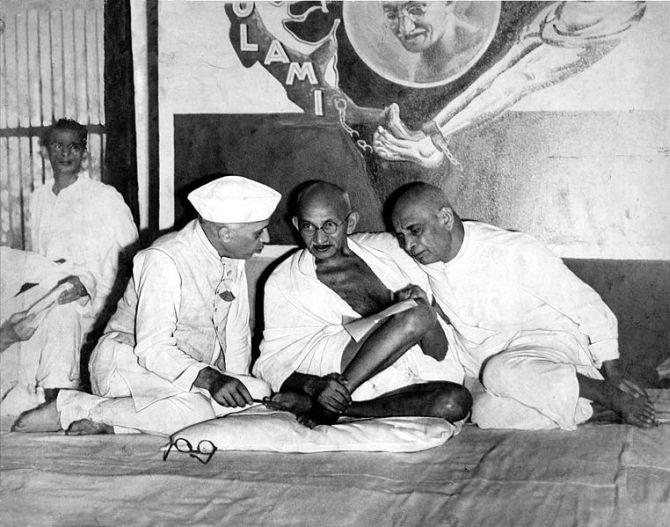
The matter of our dealings with China is more complex. You must all be aware of Patel’s letter to Nehru of November 7, 1950. It bears re-reading in full today. The letter is worth reading again for the clear headed appraisal that it makes of the situation and for the series of practical steps that it suggests in response to the Chinese PLA entering Tibet.
It is his practical suggestions for domestic responses that are as valid today as they were then, even as the international situation has changed and events have moved on.
What Patel sought was a review of our long term defence needs; political and administrative steps to strengthen our northern and northeastern frontiers; measures of internal security in the border areas; improvement of communications in these areas and with frontier outposts; and (a strengthening of the) policing and intelligence of frontier posts.
Notice that these are all designed to strengthen India. This is indeed still our agenda. It is in precisely these areas that we have made progress in the last decade, more, I dare say, than in any single decade before this one. One and a half months after writing this letter Patel passed away.
The discussion on these issues that was to take place with Nehru never did. One of the fascinating what if questions in our history is the course that events would have taken with China if we had acted on Patel’s suggestions with the necessary vigour when they were made.
The China border has been relatively peaceful after 1962 for a reason, that we are careful to maintain an equilibrium (or prevent the emergence of a significant imbalance) and a political context in which neither side finds the costs of changing the status quo attractive.
For a decade and a half after 1962 both sides were internally preoccupied and gradually attempted to build border management capacity well within the Line of Actual Control, without changing the actual situation on the ground.
During Prime Minister Rajiv Gandhi’s 1988 visit to China we agreed to maintain the status quo on the border, to negotiate a solution to the boundary question, and not to allow the unsettled boundary question to prevent the development of other relations and exchanges. In 1993 the Border Peace and Tranquility Agreement committed both countries to maintaining the status quo on the LAC and to the principle of mutual and equal security. We have also made progress in our discussions on a boundary settlement by agreeing the Guiding Principles and Political Parameters for such a settlement in 2005.
Since 1988 we have built a broader relationship with China. China is our largest trading partner in goods, over 10,000 Indians study in China, and we work together on international issues like climate change where we have similar interests. Today both India and China have a different position in the international community, and have a multi-faceted bilateral relationship which includes elements of competition and cooperation. There are certainly issues between us, as there will be between two neighbours who are growing and changing so rapidly. We try to maintain the dynamic equilibrium in the relationship needed for peace, stability and predictability. So far, we have both managed to do so successfully.
...
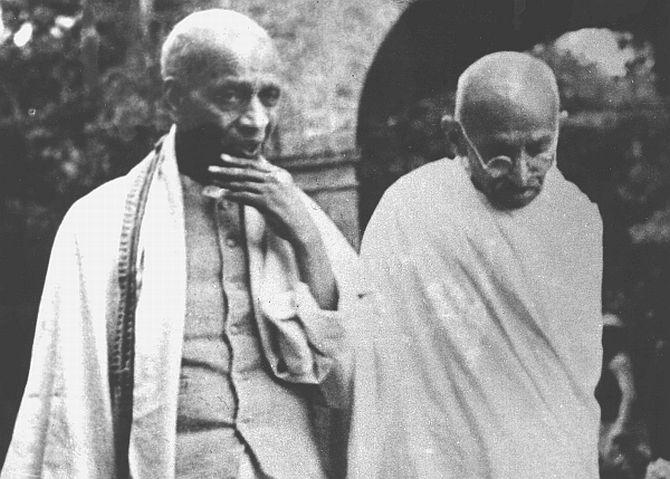
In terms of our overall security, which Patel dealt with as independent India’s first Home Minister, we face a complex set of challenges, most of them internal and many of them undreamt of in Patel’s time.
We are better off in the sense that the threats Patel’s generation faced were of an existential nature. Until the mid-sixties it could still be respectably asked in the world whether India would break up or continue to exist as a united state. We of our generation are fortunate that the India that Patel and his generation built is strong enough that we do not face such questions anymore.
What we do face are threats to our interests (not to our existence as a state and nation), in new domains such as cyber-space, and a world of growing uncertainty. We are learning how to counter terrorism. We may have improved our food security beyond the imaginings of that generation, but we now have to worry about our energy security, water security and resource availability for a population with growing needs and aspirations.
In one area that was only incipient in Patel’s time, that of nuclear weapons, we have actually greatly improved our situation. During the seventies, eighties and nineties we faced explicit or implicit nuclear threats on several occasions designed to change our foreign policy course. Fortunately our leaders at the time were strong willed and refused to be deflected. Since we tested and declared our nuclear weapons in 1998, we have not faced any such threats of nuclear blackmail.
In areas of security that were not conceived in his time Patel is a useful example of how to approach these problems, of open-mindedness, and of the mindsets that we need to cultivate and encourage.
Take cyber security for instance. So many of us now use smart-phones, laptops and computers which are connected to the internet. We know that these are attacked, either for the purpose of disabling them or of stealing data or, in more serious cases, for espionage, to damage critical infrastructure like pipelines, or for terrorist financing, communications and recruitment.
The answer is not to build walls and forts and hide behind them. In these domains where technology changes so rapidly and gives the offense new advantages every day, and where the speed of attack is almost the speed of light, there is little distinction between offense and defence. Of course we defend and build our walls in India. But, we also look for offensive solutions to deter attack and raise the costs to an attacker, or to guarantee retribution.
...
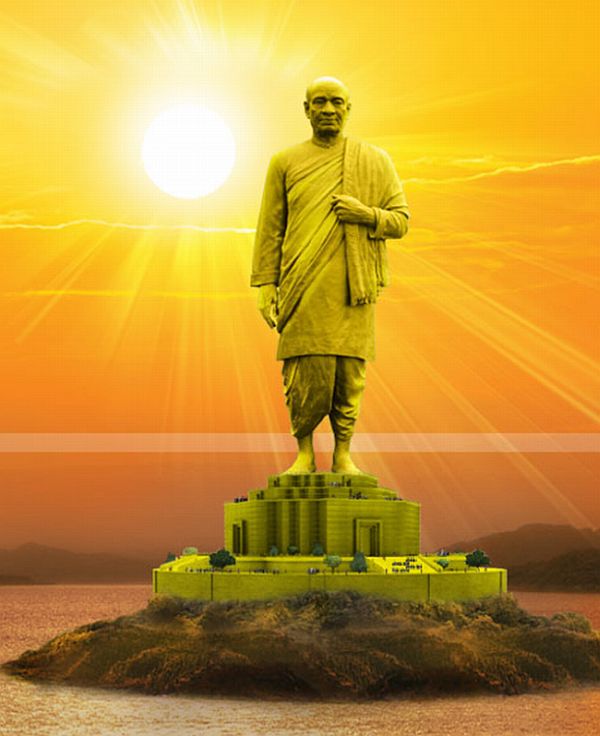
For me the most important lesson that we can learn from Sardar Patel is that we must dare to be ambitious, confident and try for the best outcomes for India. What Gandhiji was for our moral compass, Patel was for our national security calculus. And these are not contradictory for Patel was a good Gandhian.
I still hope that those who are so quick to claim Patel’s mantle but who fail to do him justice and actually diminish and distort him will learn this lesson. India’s policies abroad cannot be decided by emotion or sentiment, no matter how noble or appealing, especially in times of crisis and uncertainty abroad.
And most important they should share his faith in India, in Indians and in our capabilities which have brought us so far since Patel’s time.
Farsighted Indian administrations have drawn the right conclusions and followed such a policy, whether under Indira Gandhi, Atal Behari Vajpayee or Manmohan Singh. And that is the attitude that we must carry forward. It has brought us this far with success, measured in terms of outcomes and results, not the passing daily mood or headline or tweet.
If we are to transform India, a realist engagement with the rest of the world is what we must implement; engaging the world from strength while recognizing reality for what it is, foreswearing hubris and belligerence. India’s integrity, strengthening and transformation require nothing less. We need some of Patel’s realist policy and ambition if we are to succeed in our historic task and transform India.